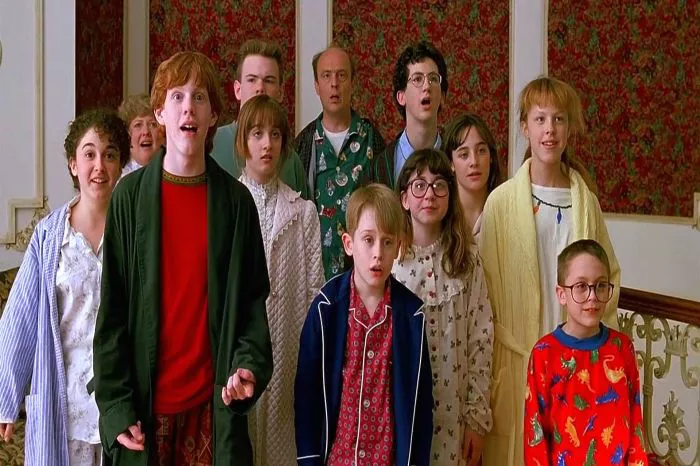“Is Home Alone actually a Christmas movie?” is a question that has sparked numerous debates and discussions among movie enthusiasts and holiday aficionados. While some firmly classify it as a quintessential Christmas film, others argue that its themes and plot could exist outside the holiday season. To unravel the complexity of this debate, it’s crucial to delve into the essence of Home Alone, its thematic elements, cultural significance, and its enduring appeal during the holiday season.
Setting the Scene:
Home Alone, directed by Chris Columbus and released in 1990, revolves around young Kevin McCallister (played by Macaulay Culkin), who is inadvertently left behind when his family embarks on a Christmas vacation to Paris. As Kevin revels in the freedom of being home alone, he encounters two bumbling burglars, the notorious Wet Bandits, and ingeniously defends his home from their attempted invasion.
Christmas as the Backdrop:
Christmas serves as the backdrop against which the events of Home Alone unfold. The film is saturated with iconic holiday imagery, including snow-covered landscapes, festive decorations, twinkling lights, and the warmth of family gatherings. Moreover, Christmas music, such as “Rockin’ Around the Christmas Tree” and “Carol of the Bells,” infuses the soundtrack, further accentuating the holiday atmosphere.
Themes of Family and Redemption:
At its core, Home Alone explores themes of family, belonging, and redemption, which resonate profoundly during the Christmas season. Despite Kevin’s initial excitement at being left alone, he ultimately realizes the importance of family and longs for their return. The heartwarming reunion between Kevin and his mother, Kate (portrayed by Catherine O’Hara), underscores the film’s emphasis on forgiveness, reconciliation, and the spirit of generosity synonymous with Christmas.
A Tale of Resilience and Resourcefulness:
Kevin’s ingenious schemes to thwart the burglars and protect his home epitomize the spirit of resilience and resourcefulness—a narrative thread that aligns with the values often associated with Christmas. As Kevin devises elaborate traps and outwits his adversaries, he demonstrates courage, creativity, and the triumph of the underdog—a narrative arc that resonates with audiences, especially during the holiday season.
Cultural Impact and Holiday Traditions:
Home Alone has left an indelible mark on popular culture and has become a beloved holiday tradition for many families worldwide. Its annual television broadcasts during the holiday season have cemented its status as a Christmas classic, evoking nostalgia and capturing the imaginations of both young and old. The film’s enduring popularity has led to sequels, merchandise, and even a theme park attraction, further solidifying its place in the pantheon of Christmas cinema.
Beyond the Christmas Label:
While Christmas undeniably permeates every frame of Home Alone, some argue that its themes of family, resilience, and redemption are universal and not inherently tied to the holiday season. Indeed, the film’s timeless appeal lies in its ability to resonate with audiences year-round, transcending the confines of Christmas.
Conclusion:
In conclusion, the question of whether Home Alone is truly a Christmas movie is subjective and open to interpretation. While its festive setting, themes, and cultural impact undeniably align with the spirit of Christmas, the film’s enduring appeal extends beyond the holiday season. Whether viewed as a heartwarming Christmas tale or a timeless story of resilience and family bonds, Home Alone continues to captivate audiences and reaffirm the magic of cinema, making it a cherished classic for generations to come.
Related Topics:
Why Jamie Campbell Bower’s Henry Creel Needs to Return to “Stranger Things”
Tom Hanks: March Through Hollywood Royalty
Garfield: The Movie – Bringing the Beloved Cartoon Cat to Life on the Big Screen

